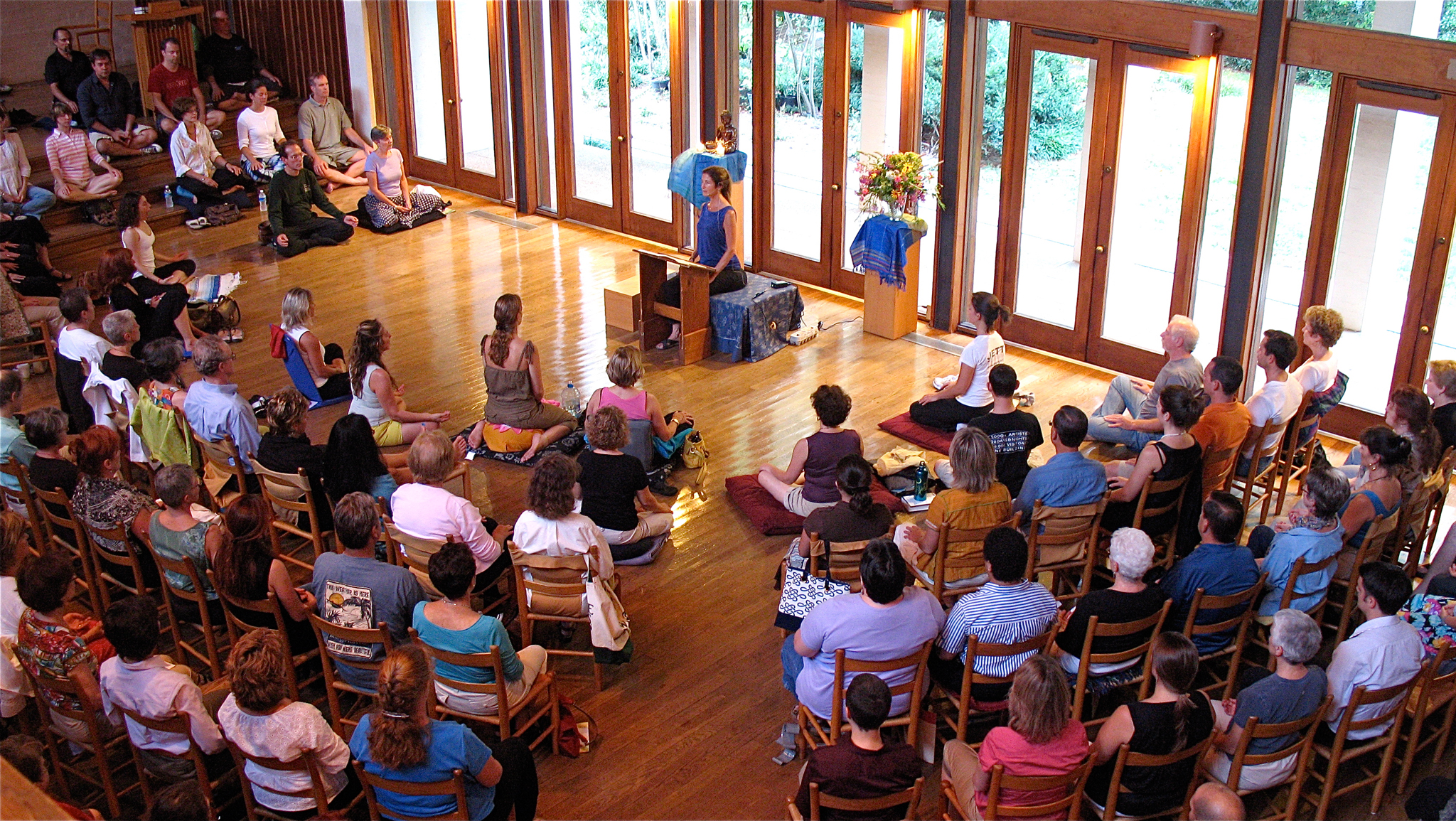One of Tibet’s great scholars presents the Buddha’s profound teachings on the laws of karma and dependent arising.
In the Rice Seedling Sutra, the Buddha unpacks the law of cause and effect. He notes how in the natural world, a seed becomes a sprout, which produces a flower, which bears fruit. A seed has no intention to sprout; when the right conditions are assembled the fruit arises. Similarly, when our senses encounter an object, a sense consciousness arises naturally, without our intending it. This, says the Buddha, is also how karma works and how actions performed out of ignorance create suffering, whether we want it or not. And this same law of causality also governs enlightenment—when the right conditions are assembled, awakening is assured.
In many sutras like this one, the Buddha explains that to understand his Dharma is to understand dependent arising. Geshe Yeshe Thabkhe explores dependent arising, and the corollary teaching of emptiness, through this sutra and others. Commenting on the works of Indian masters such as Śāntarakṣita, he shows how belief in a creator god is incompatible with dependent arising, and by illuminating the teachings of Nāgārjuna and Candrakīrti, he shows how we do—and do not—exist.
Geshe Yeshe Thabkhe was among the last generation of scholars to be trained in Tibet before the Chinese occupation. He has been teaching Westerners for decades, having worked with top scholars in the United States, and he is especially familiar with this sutra, having translated the commentary by Kamalaśīla into Hindi. Here his deep familiarity, combined with his extensive command of the Buddhist scriptures, allows him to present the Buddha’s words in a rich and authoritative context.

Tara Brach: Radical Compassion
Posted
On this episode of the Wisdom Podcast, host Daniel Aitken speaks with Tara Brach, renowned meditation teacher, psychologist, and author of several bestselling books, including Radical Compassion: Learning to Love Yourself and Your World with the Practice of R.A.I.N; True Refuge: Finding Peace and Freedom in Your Own Awakened Heart; and Radical Acceptance: Embracing Your Life With the Heart of a Buddha. These books and others can be purchased through Tara’s website and on Amazon. Tara is known for her pioneering work integrating Western psychology with Eastern spiritual traditions. She is also the founder of the Insight Meditation Community of Washington.
In this moving discussion, Tara talks about her dedication to social activism and how it fueled her interest in meditation from a young age. She explains the tension she experienced after attending social activism rallies, which were often characterized by aggression and an “us/them” mentality, versus the peaceful, unified mind/body feeling she experienced while practicing yoga. Following a yoga class one evening, she realized, “this [peaceful feeling] was what I really cherished and needed… and also what the world really needed.” This pivotal moment catalyzed her shift from radical politics to radical inquiry into the nature of awareness and compassion, with a focus on the capacity of certain practices, like yoga and meditation, to be used as tools to solve the very issues social activists confront.
Tara also recounts the experience of living in an ashram for twelve years, which laid the groundwork for several Buddhist meditation practices she would later discover, such as jhana practice, vipassana, and Dzogchen. Tara compares the benefits of each of these, and discusses how each has deeply informed the development of her own unique practices, especially those focused on self-compassion. She goes on to explain in detail the RAIN method of meditation, which she teaches and follows regularly.
Finally, Daniel and Tara discuss radical compassion and what it means for compassion to be an all-inclusive, active, and embodied expression in the world. Tara considers how we can shine a light of awareness on both our personal and political biases, and furthermore, how we might cultivate this aspiration despite millennia of conditioning.
Listeners can find additional resources and information related to the topics Tara covers, including Buddhist social activism and vipassana meditation, on Wisdom’s website.
About the Interviewee

Tara Brach is the founder of the Insight Meditation Community of Washington. She has practiced and taught meditation for over 40 years, with an emphasis on vipassana (mindfulness or insight) meditation. Tara’s teachings blend Western psychology and Eastern spiritual practices, mindful attention to our inner life, and a full, compassionate engagement with our world. Her approach emphasizes compassion for oneself and others, mindful presence and the direct realization and embodiment of natural awareness. Tara teaches classes, workshops, and silent meditation retreats at The Insight Meditation Community of Washington and throughout the United States and Europe. Her popular podcast, downloaded more than 1.5 million times each month in 200+ countries, speaks to themes of emotional healing and spiritual awakening through mindful, loving awareness and compassion in action to alleviate suffering in our larger world. Together with Jack Kornfield, she leads the Mindfulness Meditation Teacher Certification Program.
She is the author of Radical Acceptance: Embracing Your Life With the Heart of a Buddha (2003), True Refuge: Finding Peace and Freedom in Your Own Awakened Heart (2012), and Radical Compassion: Learning to Love Yourself and Your World with the Practice of R.A.I.N. (2020).
Images courtesy of Tara Brach, Jason Elias, and Jonathan Foust.
Bio courtesy of The Insight Meditation Community of Washington (www.imcw.org)
